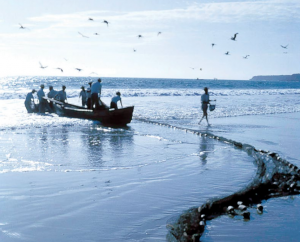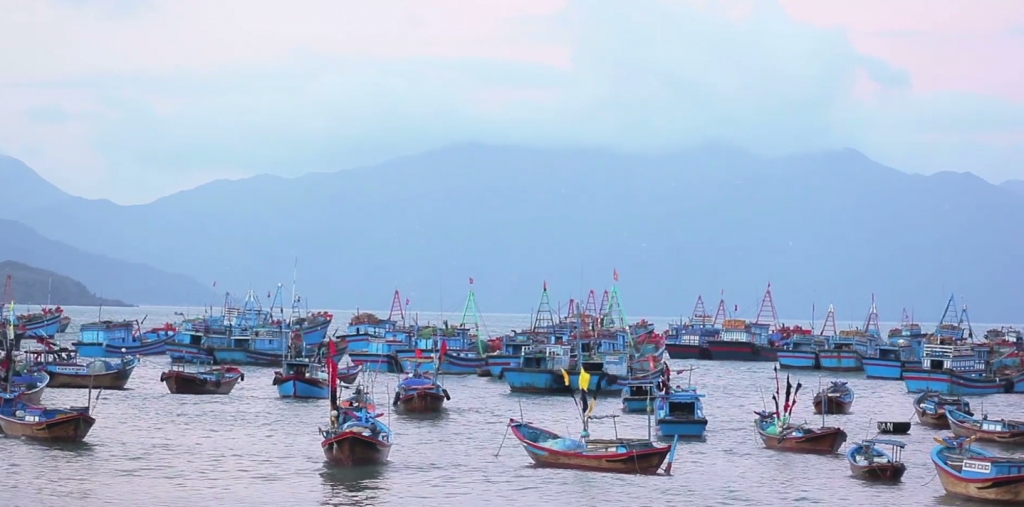Cracking Down on Illegal Fishing – The Statistician’s Catch of a Lifetime
Monday 10 July 2017
Article by Naomi Garcia
“Ultimately, if we reduce the amount of illegal fishing, everyone from someone in a remote community in the developing world fishing in a canoe all the way through to a big industrial company that is part of Australia’s economy benefits from less illegal fishing.”
– Dr Chris Wilcox, Senior Research Scientist, CSIRO .
Fisheries account for the livelihoods of 8 percent of the world population as well as 17 percent of the world population’s intake of animal protein , as reported by the Food and Agriculture Organization of the United Nations. With such a high significance for worldwide health and economic stability, the security of international fisheries is a concern of vital importance; however, until the recent web-based alert system developed by CSIRO, comprehensive protection of the fishing industry has been virtually impossible to guarantee.

Due to the incredible volume of fish transhipment, estimated at 4.6 million fishing vessels globally , strategic monitoring of each fishing vessel is nearly impossible for maritime police around the world. As such, illegal, unregulated, and unreported (IUU) fishing is reported to be one of the three main causes of the depletion and over-exploitation of international fisheries. Due to the growing global demand for fish, a large number of global fisheries are pushed to produce at a level that is beyond a sustainable capacity for the future. However, despite fisheries already struggling with over-exploitation, IUU fishing continues to account for 11-19 percent of global fish production . This illegal practice not only harms the economic stability of the work force dependent on fishery employment, but it also significantly masks the number of fish left in the waters, hindering recovery of the global fish population and introducing a wave of environmental concerns .
In response to the global fishery crisis, CSIRO has developed an automated system that uses statistical algorithms to monitor the patterns of fishing vessels on the surface of international waters. CSIRO uses data available to fishery management from anti-collision devices to track if vessels behave in unusual ways such as disabling maritime tracking devices or slowing and stopping in certain off-limit areas. In this way, CSIRO’s algorithm vastly reduces the number of fishing vessels tagged for inspection, allowing maritime police and fishery management to effectively reduce illegal, unregulated, and unreported fishing while only inspecting 5-10 percent of the fishing boats entering port.
CSIRO’s statistical analysis of maritime surveillance continues to rapidly gain momentum; the project has received global attention from many international fishery ministries as well as the United States National Oceanic and Atmospheric Administration, Global Fishing Watch, and the UN Food and Agriculture Organisation . CSIRO’s contribution to maritime security paves the way for a promising future both in terms of economic and environmental longevity on a worldwide level.

CSIRO and its partner, The Indonesian Ministry of Marine Affairs and Fisheries, are committed to global sustainability and economic security through the protection of international fisheries. Moreover, with the help of the generous $3.6 million grant from the U.S. based foundation Vulcan founded by Paul Allen, CSIRO has offered the beginning of this philanthropic effort to fisheries around the world without charge.
Naomi Garcia is currently interning at AmCham in Melbourne.
For more information on how you can contribute to the AmCham blog, check out our ‘AmCham Blog Guidelines‘ or contact our office today.